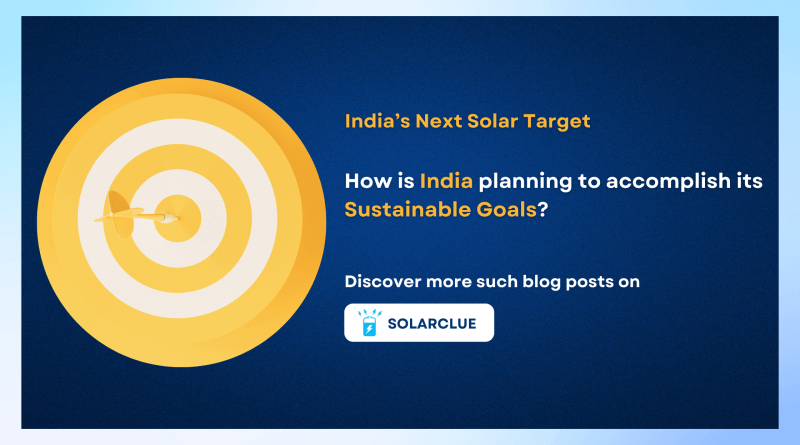How does India is planning to achieve its Clean Energy Goals?
India is planning to achieve the renewable energy goals, aiming to transform its energy landscape and contribute to global sustainability. In this blog, let us learn that what are the efforts that India is putting to achieve the targets.
Table of Contents
The Procedure to Achieve Renewable Energy Goals
1. Enhanced Renewable Energy Target
India has pledged to achieve 500 gigawatts (GW) of non-fossil fuel-based energy by 2030. This commitment was made at the COP26 conference.
This target represents the world’s largest expansion plan for renewable energy.
2. Current Progress
India ranks 4th globally in terms of renewable energy installed capacity (including large hydro).
As of November 2023, India’s installed non-fossil fuel capacity stands at more than 179.57 GW, accounting for about 42% of the country’s total capacity.
The installed solar energy capacity has increased by 30 times in the last 9 years, reaching 72.31 GW.
India saw the highest year-on-year growth in renewable energy additions in 2022 with a 9.83% increase.
3. National Solar Mission (NSM)
Launched in 2010, the NSM aims to establish India as a global solar leader.
It aligns with India’s commitment to achieve 50% cumulative electric power installed capacity from non-fossil fuel-based resources by 2030.
4. Assessment of Potential:
The National Institute of Solar Energy (NISE) assessed India’s solar potential at an impressive 748 GW.
Assuming that 3% of wasteland area can be covered by solar PV modules, this estimation reflects the vast possibilities.
5. Policy Support
India allows up to 100% FDI under the automatic route for renewable energy generation and distribution projects.
Policies and schemes encourage investment and growth in the renewable sector.
6. Net Zero Emissions by 2070
India is committed to achieving net-zero carbon emissions by 2070.
Short-term and long-term targets include reducing CO2 emissions, fulfilling energy requirements via renewables, and reaching a non-fossil fuel energy capacity of 500 GW by 2030.
7. Budget Allocation
India is committed to achieving net-zero carbon emissions by 2070.
Short-term and long-term targets include reducing CO2 emissions, fulfilling energy requirements via renewables, and reaching a non-fossil fuel energy capacity of 500 GW by 2030.
In summary, India’s journey toward renewable energy is marked by promise, progress, and a determination to harness the sun’s radiant potential.



